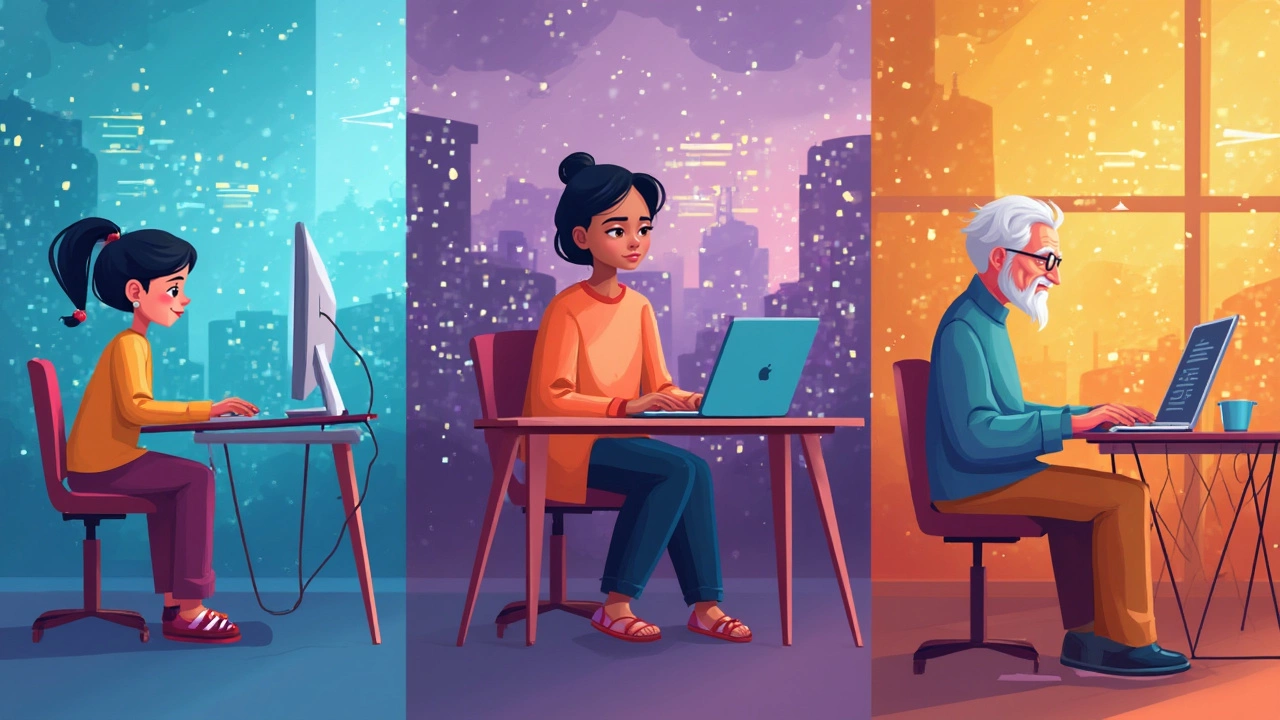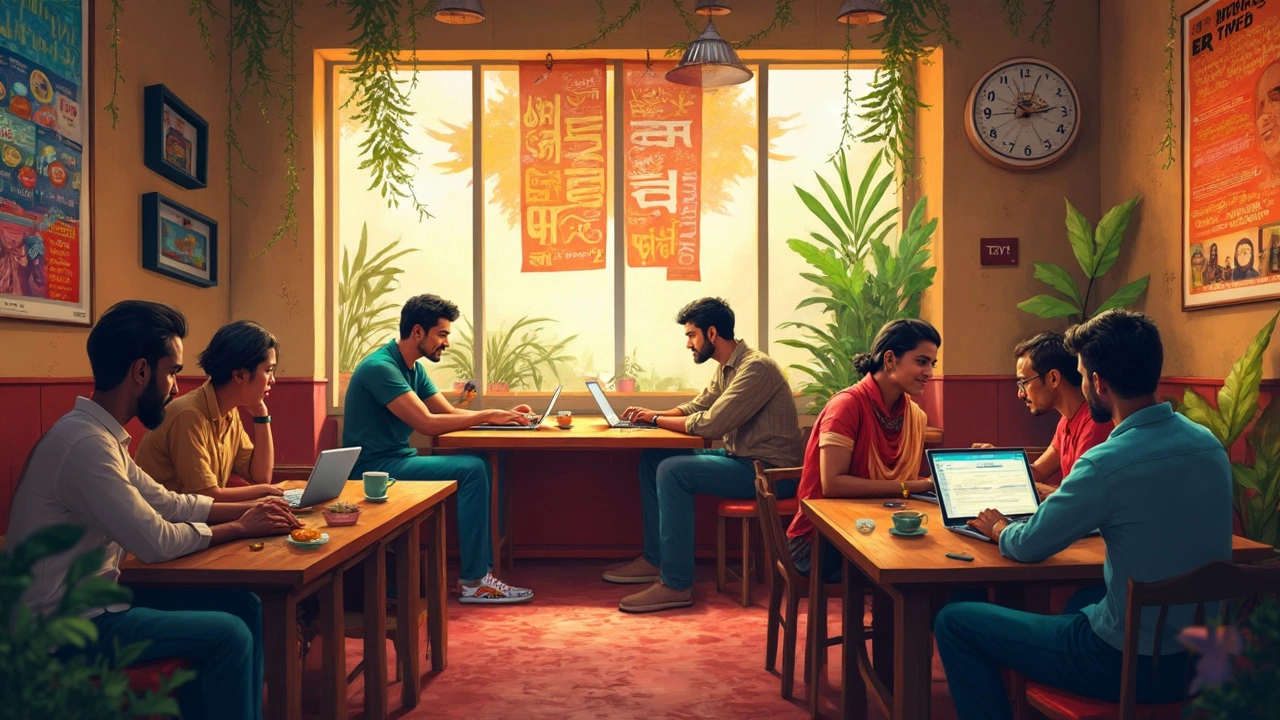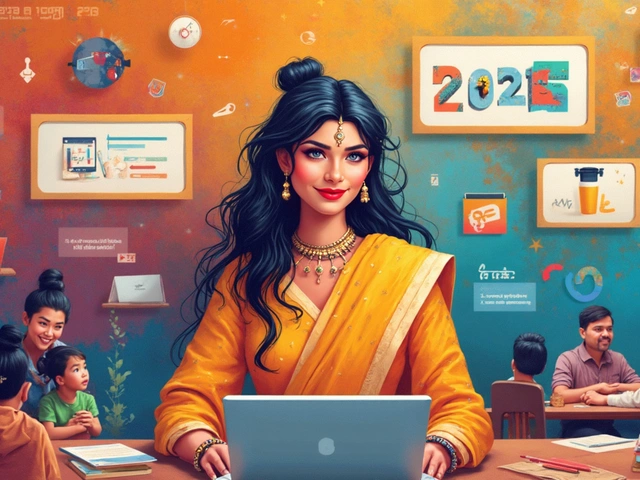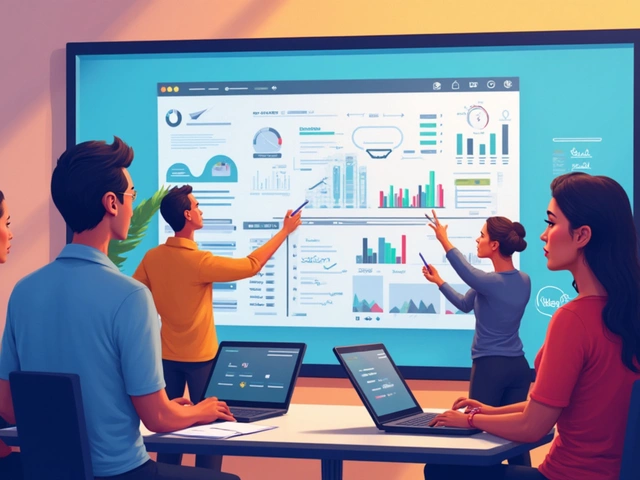If you picture a coder as a hoodie-wearing teenager hunched over a gaming laptop, you’re not alone—Hollywood loves that image. But the truth? Today’s coder is just as likely to be a parent juggling homework help, someone switching careers in their 30s or 40s, or a retiree picking up a new hobby. Recent surveys show the average age of a professional coder falls around 32, but there’s a huge age range sitting right behind that number. In fact, some big tech job boards found that nearly 20% of their coding workforce is over 40.
This isn’t just about trivia. Knowing the real numbers—who’s actually in this field—can help you decide if coding classes fit your stage in life. If you’re worried about being the oldest in the room, relax. Coders show up in every age bracket, often working together on the same teams. There’s no cut-off date for learning Python or building your app idea. The most important thing is wanting to learn, and you’re not too early or too late for that.
- What’s the Average Age of a Coder?
- Does Age Matter in Learning to Code?
- Real Stories: Coders Who Started Late
- Tips for Joining Coding Classes at Any Age
What’s the Average Age of a Coder?
People might guess all coders are 20-somethings cranking out code before noon, but the numbers paint a different story. According to Stack Overflow's 2023 Developer Survey, the average age of a working coder is about 32 years old. Newer surveys from coding bootcamps put the number even a bit higher, with plenty of folks starting out in their mid-30s and beyond.
It gets more interesting: programming demographics show coding attracts people from all walks of life. Some folks start in high school or college, while others jump in after a decade doing something totally different. Here’s a quick look at coder age breakdowns based on real workplace data:
| Age Group | Percentage (%) |
|---|---|
| 18-24 | 16 |
| 25-34 | 47 |
| 35-44 | 22 |
| 45-54 | 11 |
| 55 and up | 4 |
This chart isn’t just for show—it’s a snapshot from 2024 tech hiring reports. Almost 40% of people in coding classes and entry jobs are over 30. So, there’s no such thing as being too young or too old for this field.
Why such a wide spread? For one, tech careers pay well, and people love the flexibility. Some take free online tutorials while stuck on a night shift, parents learn in between school runs, and others just get the itch to build something cool. If you’re worried you’re out of step with the "average coder age," there’s actually no one right age to start.
Does Age Matter in Learning to Code?
People stress about being "too old" to start with coding all the time. Here’s the honest answer: your age doesn’t matter much for picking up programming skills. Kids might pick up new tech quickly, but adults bring other strengths—like discipline, patience, and a clear sense of why they're learning. There's a good reason so many folks over 30 and even 40 are signing up for coding classes now: they want a fresh career, a side hustle, or even just a brain tease to keep sharp.
Studies from Stack Overflow and Codecademy suggest beginners come from a wide age range. It’s not just 20-year-olds jumping into tech careers. Here’s a snapshot from a popular coding bootcamp’s stats:
| Age Bracket | Percent of Students |
|---|---|
| Under 25 | 35% |
| 25-34 | 40% |
| 35-44 | 18% |
| 45 and up | 7% |
Plenty of programmers actually say their job got easier as they got older. Why? Because coding is more about solving problems than memorizing code. If you can stick it out through some initial frustration, you’ll see age is just a number when it comes to learning the ropes.
- Learning styles change as you age, but sometimes that's a bonus—older students often ask sharper questions.
- More life and work experience means you can spot real-world uses for code that younger students might miss.
- It’s never too late to boost your skills, pivot your job, or just make something cool.
Does age matter? Not nearly as much as whether you enjoy learning new things and stick with it. The coding world is full of people spanning decades of life—and they all started with "hello world."

Real Stories: Coders Who Started Late
There’s a huge myth floating around that you have to be young to get into coding. But here’s the thing: loads of folks are jumping into coding classes in their late 30s, 40s, and even 60s—and crushing it. Take Susan Wojcicki, for example. Before becoming CEO at YouTube, she switched to the tech world in her 30s after studying history and literature. Or Greg Siskind, who learned to code at 49 so he could automate parts of his legal work and make his law firm more efficient. These aren’t outliers.
The 2023 Stack Overflow Developer Survey found that about 12% of new coders who responded were over 39. Big bootcamps report similar numbers. For instance, General Assembly shared in an alumni update that almost a fifth of their students are over 35, and plenty finish their courses to land quality tech jobs or freelance gigs.
“We regularly see people coming in with no tech background, sometimes after decades in a different field. Age isn’t a blocker—it’s actually an asset because mature students bring fresh perspectives,” — said Liz Eggleston, co-founder of Course Report.
Learning to code as an older adult isn’t just possible, it can give you a leg up. People coming from other industries often spot problems nobody else notices, and they bring patience plus work experience. No surprise, companies are starting to notice this untapped group.
Here’s a quick look at age ranges in some popular coding programs last year:
| Program | Percent of Students Over 35 |
|---|---|
| General Assembly | 19% |
| Flatiron School | 17% |
| Coursera Programming Courses | 22% |
If you’re worried about standing out because of your age, take a breath. Picking up coding classes later in life is pretty common—so common that entire networks now support “career changers” in tech. And as the numbers show, you won’t be the only one in class working out what a for-loop is.
Tips for Joining Coding Classes at Any Age
Ready to dive into a coding class but unsure if your age puts you at a disadvantage? You’re in good company—people from teens to retirees are tackling coding classes every day. There’s no “right” time. The biggest tech learning platforms, like Codecademy and Udemy, report thousands of new learners each month aged 16 all the way up to 60+. Your drive to learn matters way more than your birth year.
If you want to actually pick the right coding classes, make a list of what you want to achieve. Are you hoping to land a tech job, automate some work tasks, or just do it for fun? Different courses match different needs. Web development bootcamps tend to be hands-on and career-focused, while platforms like FreeCodeCamp and Khan Academy let you go at your own pace—perfect for busy parents or anyone easing in after hours.
- Start with basics. If you haven’t coded before, begin with beginner-friendly languages like Python or JavaScript. They’re super popular in programming demographics and tons of resources are free.
- Use forums and study groups. Sites like Stack Overflow and Discord have welcoming spaces for new coders of all ages. Many local libraries and community centers host coding meetups, too.
- Pace yourself with goals. Set small, regular goals. Even 20 minutes a day adds up fast. Tracking progress—say, finishing a module or solving a simple problem—keeps you motivated.
- Don’t stress about speed. Older learners sometimes get frustrated if they don’t pick things up instantly. Everyone learns at a different pace, and struggling a bit is normal. Remember, famous Google engineer Ken Thompson was still building new tech in his seventies.
Here’s a fun look at age distribution from a recent coding survey:
| Age Group | % of Learners |
|---|---|
| Under 20 | 15% |
| 21-30 | 40% |
| 31-40 | 25% |
| 41-50 | 12% |
| 51+ | 8% |
Wherever you land on this chart, you’re not alone. The mix of ages brings fresh perspectives to class forums and project teams. You could end up collaborating with a high school grad or a retired nurse on the same code project. If you hit a wall, don’t quit—you might just need a new tutorial or another set of eyes. The secret? Keep showing up, keep asking questions, and remember that learning to code is a marathon, not a sprint.






Write a comment: